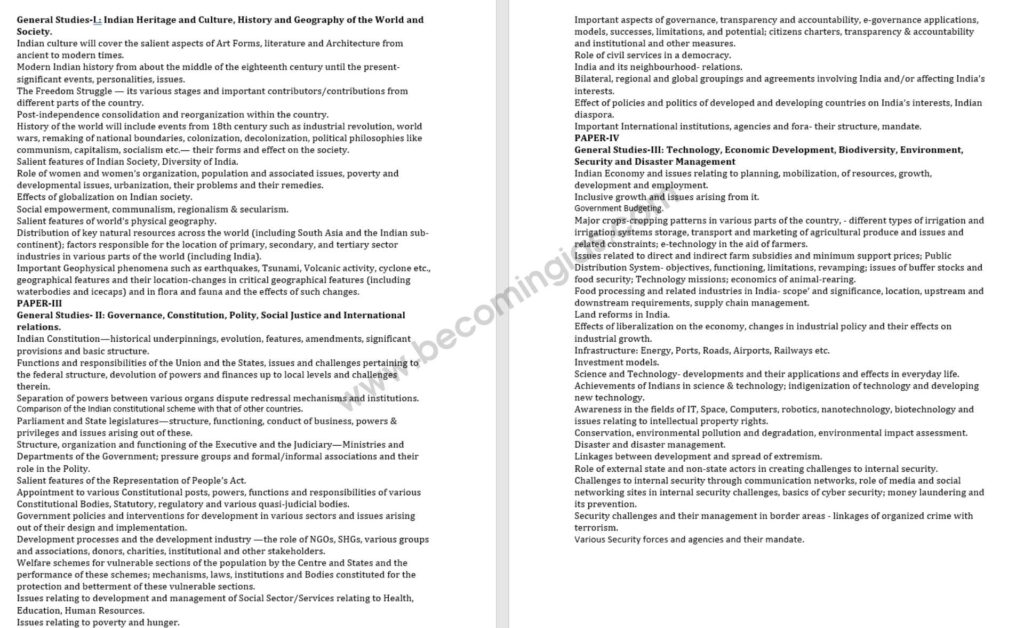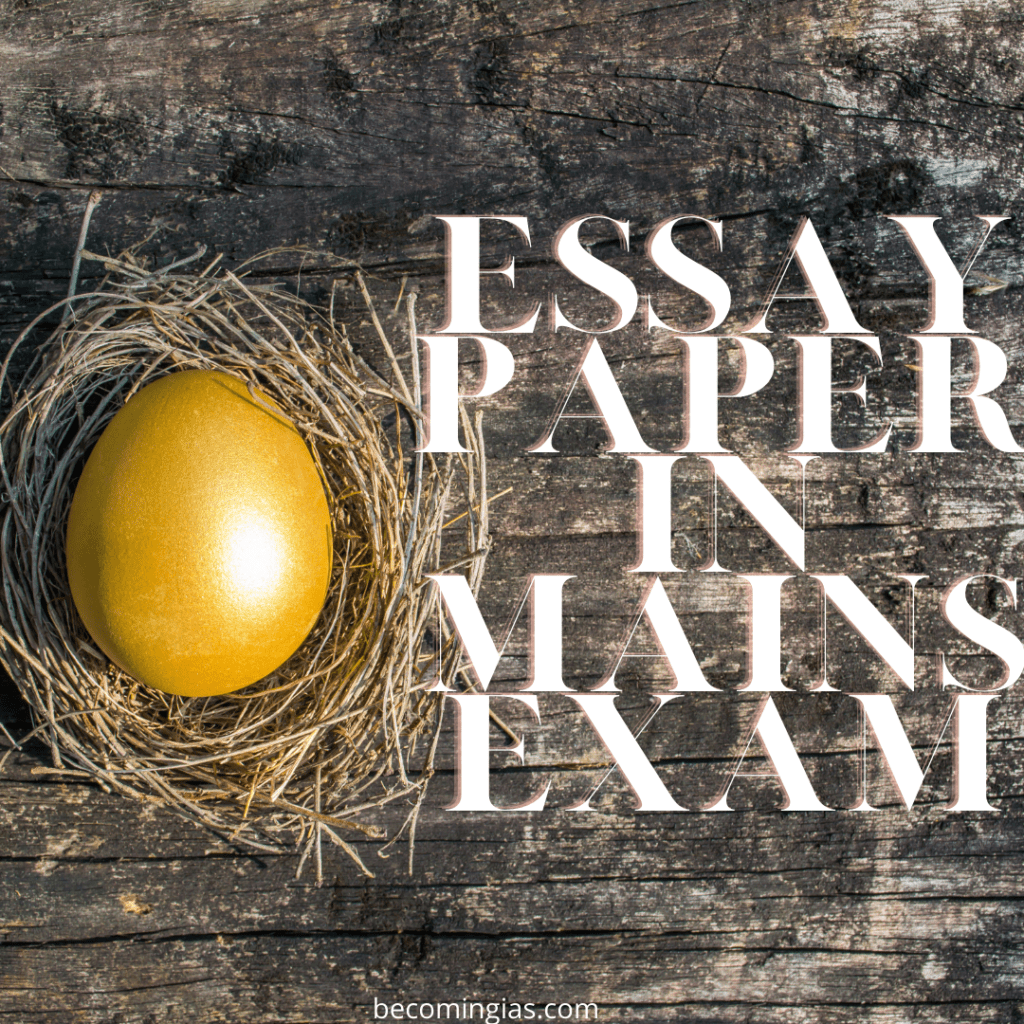-Shri Amit Kumar Singh, IRS
UPSC prelims 2020 is over but the hangover remains. Here’s what you need to do immediately if you want to get the edge in this upcoming UPSC Mains exam.
1. Stop analyzing the UPSC Prelims Paper.
The Time period between prelims exam and result is the most prone to wastage. Especially by first timers. The reason for this is human psychology of expectation and feeling anxious about the UPSC Prelims result.
You might find yourself hotly debating every prelims question. Or Self-appointed UPSC babas declaring cut-off marks after detailed “data analysis” of UPSC trends.

There may be many alternate theories floating around justifying their version of the answer as correct.
Conspiracy theories about the “Intention” of UPSC behind every question will be justified by linking it to the most trivial of current affairs.
Here’s why All these speculations are wasteful, harmful and why you should avoid them-
- You will feel disheartened when you learn about your wrong answers. Such discussions will drain your mental and emotional energy which are precious resources you will need for the upcoming Mains exam.
- There is no way any person or coaching can predict how more than 5 lakh candidates all over the country have attempted the examination.
- The nature of questions asked is so subjective and context based that every year there are 10-15 questions which become controversial. Perhaps this is intended by the UPSC and is justified by the fact that the UPSC exam is a dynamic exam which tracks the happenings of an ever-changing world. Current affairs, by definition, constantly change. This implies that no coaching institute can even come out with a 100% authentic answer key for Prelims.
- The real answer keys will be declared by UPSC only after end of entire selection process. No one till then can claim authority over all the correct answer.
Obsessing about UPSC Prelims will be an unnecessary emotional rollercoaster ride which you should avoid.

But if you must go down that road, then do your own analysis, google search for your own answers and form your own opinion about the correct answers.
Once this exercise has been done and you have a fair idea where you stand, you need to get over prelims mania and move on to the real deal – the Mains examinations.
2. Start practicing answer writing daily.
Prelims is a negative examination intended at weeding out non-serious candidates. It does not test your suitability for selection.
Mains exam on the contrary is a positive examination intended to select the best candidates for various services. It therefore, test your knowledge, your thought process, your analytic ability and your ability to innovative and think out of the box.
Unlike UPSC prelims, mains exam is not factual in nature. You need to shed the prelims mindset of getting fixated at every little factual details and start to be able to see the big picture of the topic.
However, all these traits need to be expressed through your written words in the Mains exam which is a problem because you are NOT prepared for it.

Here’s why you are not prepared for writing the mains exam-
- Writing is a skill which requires time and patience to develop.
- Most people loose touch with writing after School because most examinations and study is now computer based so there is no need for writing using pen and paper in everyday life any more
- The mains exam is 27 hours of writing in total which includes 9 papers of 3 hours duration each. You may not realize it yet but this is a physically painful amount of writing to do especially when you are out of touch with putting pen to paper.
- The kind of writing which you need for the UPSC 2020 mains exam should be terse, to the point, logical and objective. You must be able to communicate complicated concepts in very few words i:e your expression must be concise and exact.
- This is very different from what you are used to writing like. It requires targeted practice.
- The typical word length of questions in the Mains exam is 100-200 words which is about 10 sentences. This is very few words to explain something important abstract, important or thought-provoking. Imagine explaining climate change or Equality- in all it’s complexity in 100 words.
- Simply gaining knowledge without learning how to express it in your own words is useless. You still need to learn to express this knowledge within given word limits.
- You cannot start to practice answer writing after you have covered the entire mains syllabus. It needs to be made into a daily habit. A topic for mains should be considered completed only after you have written down at least a few questions asked about it mains previously.
Thus, you need to practice hard to be able to express your thoughts precisely and concisely on paper in the UPSC Mains exam.
You can do all the above in a very short amount of time by using this incredibly useful book by Shri Ravi Kapoor, IRS-

CHECK OUT THE ULTIMATE CHEATBOOK OF ESSAY AND ANSWER-WRITING BY CLICKING HERE.
3. Put up the UPSC Mains syllabus and start marking it daily.
UPSC Prelims covers a vast oceans of knowledge. Every year there are a few questions in prelims about which even the best prepared candidates have no clue.
The possible reason for this is the negative nature of UPSC prelims explained above.
Mains examination does not do involve any such trickery with you. The UPSC Mains syllabus is clearly defined and the questions asked correspond clearly with the given syllabus.
Unlike prelims where you do not know which portion (like History or Polity) will dominates majority of questions this year, in the UPSC mains exam the proportion of questions asked from each portion is syllabus remains mostly same.
A quick analysis of previous year papers will give you a clear idea about which portion of syllabus pertains to the weightage of questions and marks in mains.

You can read the UPSC mains Syllabus ultimate guide here.
Thus, after the upsc prelims, the mains syllabus should be your guiding light. For ease of reference, we have compressed the UPSC 2020 syllabus for GS Mains in one image. I recommend keeping this picture in front of your desk all throughout your UPSC preparation journey.

You should save the above image of the UPSC mains syllabus for ease of reference during your preparation journey. Make it something which you look at regularly.
If I were you I would set it up as the background Wallpaper of my Computer or Phone to serve as a constant reminder.
Each topic written in it should be marked as completed, answer writing done and revised systematically. This will keep your preparation structured and smooth.
4. Become a BRILLIANT ESSAY-WRITER before the UPSC Mains Exam
If prepared correctly , Essay marks can be the nitro boost to your mains performance.
Essay is also the most neglected portions of mains papers. Candidates either assume they can write good essays extempore and or just surrender that they can ever write good essays.

YOU CAN LEARN THE SHORTEST AND MOST EFFICIENT WAY OF WRITING BRILLIANT ESSAYS IN THE UPSC EXAM BY CLICKING HERE
In both cases , candidates avoid practicing essay writing in a structured manner. It is wrong to assume that because essay topics are not known they cannot be practiced. Essay is treated like a lucky draw coupon like the upsc prelims. On your day if you get a favorable topic you write nicely else you just curse your luck for not getting a topic of choice. This approach is dangerous and should be avoided.
Essay paper like all other papers has a set structure and pattern. It needs to be analyzed and practiced like all other papers.
Regular practice for Essays will make you feel extra confident when the mains examination approaches. Its critical that you should learn from the mistakes of others. You can read about how Ravi Kapoor survived the biggest blunder in the Essay paper of the UPSC exam but still managed to secure an All India Rank. You can find that article here.
To learn about what the UPSC wants in the ESSAY PAPER, read this article. The most efficient, powerful and incredible analysis and break-up of Essay and answer-writing I have found is in the Ultimate Cheat book Of Essay and Answer-writing which you can learn about more by clicking on the link below.
5 . Deep Dive into your optional subject
If UPSC exam is like a war then your optional subject is your weapon of choice.
GS papers syllabus is so vast that no one can claim mastery over all topics equally. Thus, you may gain marks in one GS Paper only to loose out in another GS paper.

Mostly GS marks turn out to b a zero sum game. Year after year marks of toppers show that it is the marks in optional papers which decide your possibility and position of your name in the final merit list.
Thus, top priority should be to complete your optional papers first and then revise it thoroughly and keep practicing answer writing for it till you become as comfortable with it as a soldier is with his weapon.
I hope these tips make you quickly change tracks from UPSC prelims to the Mains mindset which should actually be the MAIN mindset for this exam.
Feel free to drop a comment and let us know what you think.
All the best for the upcoming UPSC Mains exam!

I am unable to Get access to cheat codes books. Kindly do the needful and guide me.